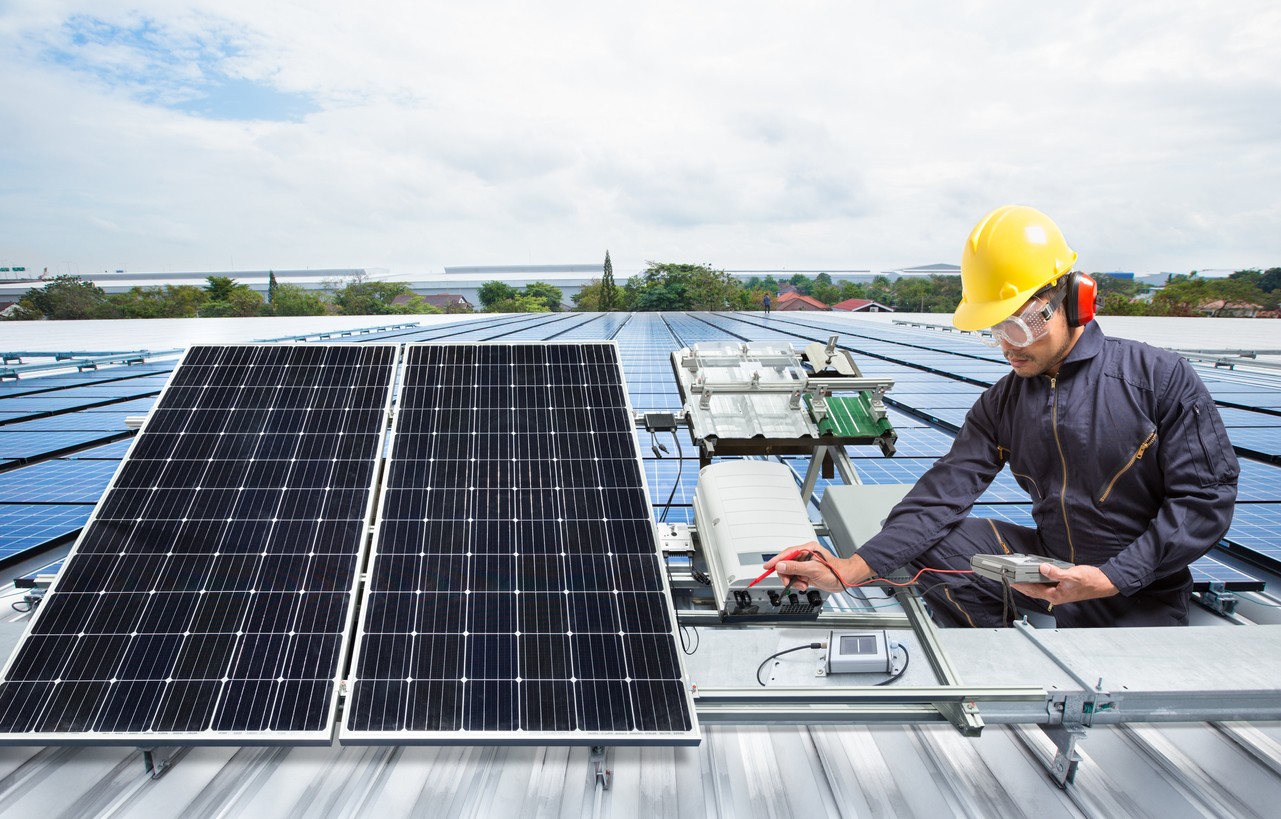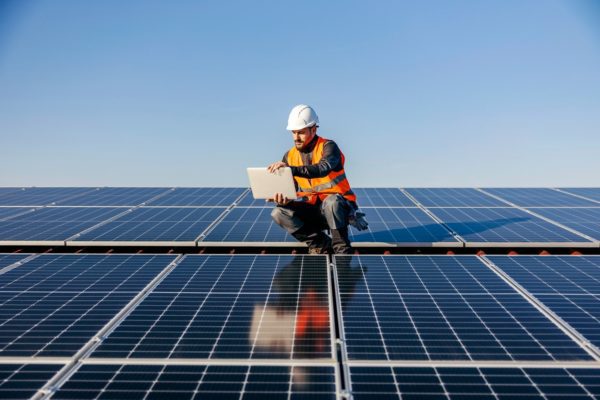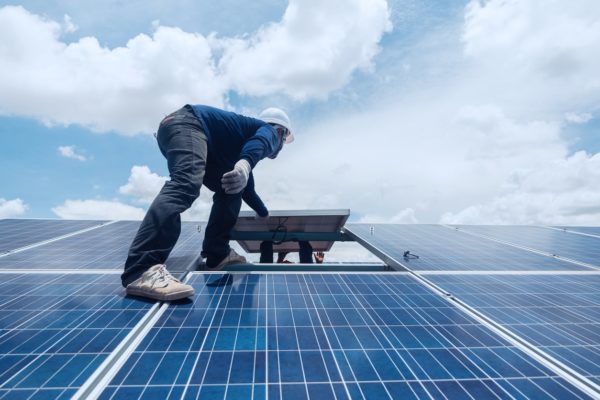
The demand for solar energy is rising not only in the United States, but across the globe. Not to mention, the demand for solar energy systems has increased at an annual rate of 42% in the last decade. This is because of the growing need for renewable energy and cheaper installation costs.
Since solar energy has become a common source of energy, you might also want to get it installed for your company. If you plan to do this, it’s a great way to reduce the cost of electricity. The best part is that solar panel system works well for small companies, startups, and giant corporations. Not only can you save your money, but you can also sell the extra amount of energy produced on your property.
Wondering what the risks associated with solar panels are? Some solar panels risks have made people skeptical of installing them on commercial properties. But you can prevent all potential problems by choosing the right company for installation, opting for quality products instead of cheap ones, and maintaining your solar system. Learn more about the risks and ways to avoid them below.
Changing Regulations
The federal government and some state governments incentivize solar panel installation with rebates and tax credits that lower installation costs. Some local governments and states also have established long-term regulations that increase solar investments, like SRECs (Solar Renewable Energy Certificates) and net metering.
So, if you are planning to enjoy the benefits of these solar-friendly programs, there is always a risk that they get canceled or rolled back. Net metering is when a utility company compensates you for extra energy generated by your solar system.
If your area offers net metering, you will be compensated at a one-to-one rate equal to the retail energy rate. Each kWh of electricity you transfer to the grid will give you credit for one kWh to pull off the electricity from the grid when needed. While this benefits you, states can always cancel this program if necessary. However, people who have already installed solar panels will continue to enjoy this benefit for a lifetime, even if it gets canceled.
In the case of SRECs, for one megawatt-hour your solar panel produces, you will receive one SREC. You can sell these credits to electricity providers on an open market that helps them avoid SACP (Solar Alternative Compliance Payment). However, the amount you can earn from SRECs depends on supply and demand. So, if there are few SRECs available to purchase, the higher the value of a SREC will be. Changing state policies can close the market if you live in the SREC market. This means you might not get the extra income from your solar system.
Solar System Components
The solar panel system has several components that can fail like any other electronic appliance, especially if designed with poor-quality panels and incorrect installation. The components that usually fail are wiring, fuses, and switches.
If you notice that these parts are not working, you need to replace them as soon as possible to avoid bigger problems like a complete system failure. Failure to comply with the technical policies can cause fire and electric shock damage.
The simplest and easiest way to prevent dangerous components from risking your life or anyone around the solar system is to hire an experienced and skilled company. Also, ensure that they are reliable and can be trusted.
A reliable company in the industry will provide you with the best quality products and services to maintain their demand in the market. Most of these companies also give you a guarantee and take responsibility for every work they do. So, this way, you can reduce risk for your company and enjoy the benefits or your solar panel system.
Damage to Your Roof
While it’s true that a properly installed solar system will not cause any damage to the roof, wrong installation can lead to roof leaks. Faulty equipment or poor installation are two significant problems that damage roofs.
Except for your company’s flat roofs and standing seam metal roofs, penetration in the roof itself will be needed to secure the panels and racking. The professional installers will reinforce penetrations to ensure your roof doesn’t leaks.
Depending on the company you choose, the contractor will use different types of products to keep your roof safe. Though installing a solar panel system with risk mitigation may cost you more, it can save you money in the long run, as you won’t have to repair or maintain your roof.
Weather Damage
Premium quality solar panels can go a long way. Though they are durable and work effectively, they are still not invincible. When you install a solar system, you also need to accept the risk of damages that comes with accidents or severe weather.
Solar panels with comprehensive warranties will allow you to cover the specific damages. This includes manufacturing damages caused by hail, wind speeds, and snow load. If your solar panel gets damaged or breaks under the conditions mentioned in the policy, your warranty will cover the damaged equipment.
Keep in mind most of the popular manufacturers in the state will not offer warranties against severe hurricane-force winds, massive hailstones, fires, or fallen trees. To deal with these issues, you can cover your solar panel systems under property insurance. This way, you don’t have to risk replacing your solar panels after extreme weather conditions hit your company’s roof or the place where solar panels system are present.
Electricity Risks
The additional electricity produced by the solar panel system can be stored in batteries that people usually keep inside the property. This poses risks because it can store more than 600 volts of electricity based on the batteries you have used.
If you mishandle batteries or have a weak connection between the batteries and the solar system, this can result in electrical damage and fires. Also, humans can experience electric shocks that could prove to be fatal. It is important to maintain you solar system to avoid these risks.
Tips to Reduce Risks

You can reduce solar panel risks like any other electrical system by taking specific measures. Here are a few things you can do for your commercial solar panel system safety.
- Look for highly experienced and trained solar panel installation companies to avoid falls, trips, and injuries to workers.
- Opt for a certified and licensed company that can cover damages occurred in the solar panel system.
- Find out the state, federal, and local policies before installing solar panels to learn what you need to know.
- Get breakage or damages fixed as soon as possible when you notice them by an expert to prevent problems.
- Never consider only the price of the installation and equipment. Always look for quality.
- Investigate the contractor before hiring them to learn if they can offer reliable work.
Commercial Solar Panel Systems from Coldwell Solar
Coldwell Solar ensures you won’t have to face any problems once you install a solar panel system. We use the highest quality equipment and products that don’t damage your roof and are durable enough to work for several years. We will take care of the installation process, including the construction, engineering, rebates, permits, and much more.
Our team of experts also takes every important precaution to ensure safety. If you need any help after installation, we are here to support you. Contact us to install a new solar system today!


